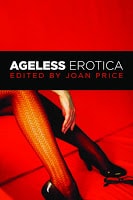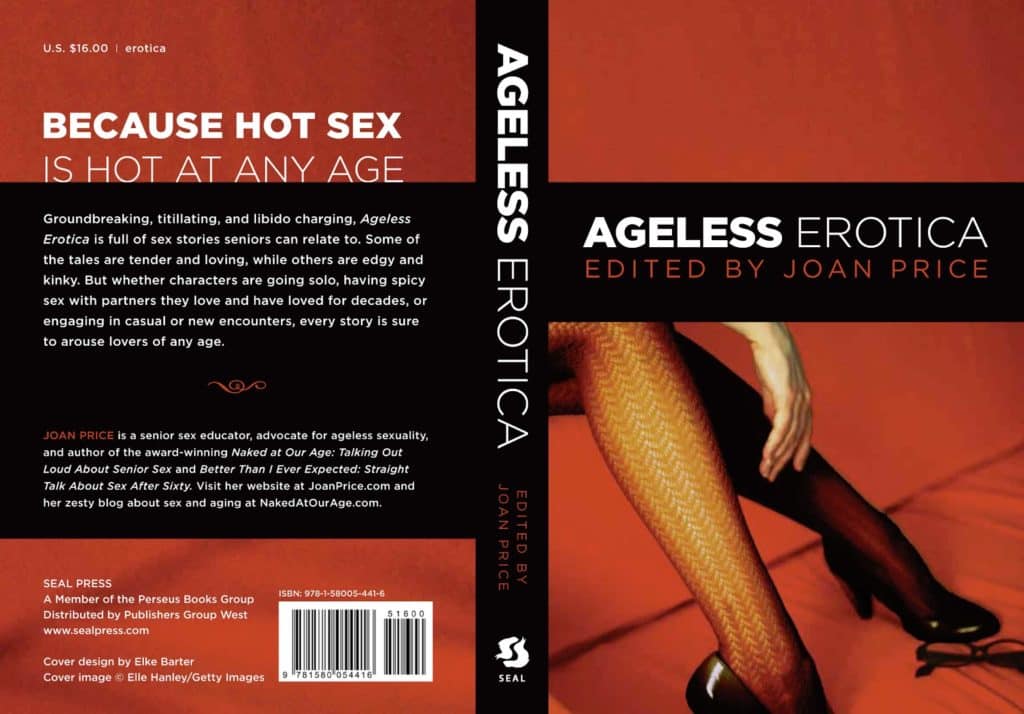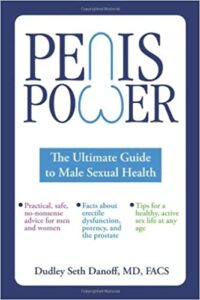Posts Tagged ‘books’
Prostate Play for Pleasure and Health
questions you thought you couldn’t ask anybody. I interviewed Charlie Glickman by email on topics of particular interest to our age group:
Q: What are the benefits of prostate play for a man over 50, particularly?
CG: Besides the fact that it can feel amazing, there are a few great reasons to try prostate play. First, it gives you new possibilities and choices when it comes to sex. A lot of folks go their whole lives having sex in more or less the same way, which is rather like eating the same food all the time. If it works for you, great! But if you’d like to try something new, it’s a really fun option.
Second, a lot of men find that prostate play really is the male G-spot. If you’ve ever had the pleasure of pleasing your partner with G-spot play, imagine how much fun you and your partner can have when you reverse that.
In addition, there are some important possible health benefits. I should stress that these haven’t been scientifically proven, mostly because there’s not a lot of funding for this kind of thing. But many men have shared their stories and there do seem to be some patterns. Massage increases blood flow, which helps bring oxygen to your cells and keeps them healthy. And since prostate massage can be sexually arousing, that increases circulation even more! It also helps relieve muscle tension in the pelvic floor.
A lot of people, especially men, have tight pelvic muscles, which can lead to mobility difficulties and even prostatitis, an inflammation of the prostate that can be caused by muscles squeezing the gland. Massage reduces that. Prostate massage can also break up biofilms, which are a protective coating that bacteria can form, much like plaque on your teeth. By breaking them up, massage helps your body’s defenses protect you.
And lastly, prostate massage gives you greater awareness of your prostate, so if you get an infection, you’ll notice it sooner and get treatment.
Since about 50% of men at age 50 have an enlarged prostate, they might have difficulty urinating or have the urge to urinate frequently, especially at night. Massage can reduce those symptoms, though most men find they need to keep doing it regularly. If you prefer to do it solo, an Aneros Prostate Massager is perfect for hands-free massage. How often can you do something that’s good for you and feels great?
Q: How does prostate play enrich sex if erections are undependable?
CG: Exploring sexual pleasures that don’t depend on erections gives you many more choices when you want to have sex. And since one reason erections can be tricky is that stress and anxiety interfere with them, knowing that you don’t have to have an erection to have fun can actually make erections easier. So by helping men let go of their worries around erections, prostate play opens up lots of new directions.
Q: How can a man suggest prostate stimulation to his female partner if he fears she will think anal play is “gross” or “dirty”?
CG: Fear of “the mess” is one of the big three concerns we heard from men and their partners when we wrote The Ultimate Guide to Prostate Pleasure. Contrary to a lot of myths, the rectum (the last several inches of the digestive system) isn’t a “holding tank.” In general, there won’t be much there until you have that “gotta go to the bathroom” feeling. If your diet doesn’t have enough fiber or if you take a medication that affects your digestion, there might be a small amount left behind, but it’s easy to take care of that with an enema.
Enemas aren’t hard to do, but there are some tips for making them work better. Check out this page on our website for some suggestions. And of course, we have lots more to offer in the book.
Q: As you speak to audiences about your book, what questions/ concerns/ stories keep coming up for our older age group?
CG: It varies a lot. Many older men have come to see how stereotypical definitions of masculinity are holding them back in their lives and are ready to explore new ways of defining who they are. These guys are often more willing to explore anal play and prostate pleasure without letting those notions get in the way. On the other hand, other men are still very locked into these beliefs, which often keeps them from discovering how much fun prostate play can be. So we hear stories from both ends of that spectrum.
Q: I imagine you also encounter negativity from some. What keeps you going?
CG: Knowing that right now, somebody is having a great time because of our book is a huge inspiration. I don’t think anything works for everyone, so the fact that there are some negative responses isn’t a big deal. I know how many people we’ve reached and who have told us that the book has changed their sex lives. And that’s amazing.

Charlie Glickman PhD is a sexuality speaker, trainer, writer, blogger, and coach. He’s certified by the American Association of Sexuality Educators, Counselors, and Therapists, and has been working in this field for over 20 years. His areas of focus include sex & shame, sex-positivity, queer issues, masculinity & gender, communities of erotic affiliation, and many sexual & relationship practices. Charlie is the co-author of The Ultimate Guide to Prostate Pleasure: Erotic Exploration for Men and Their Partners. Find out more about him at www.charlieglickman.com or on Twitter and Facebook.
Ageless Erotica!
Ageless Erotica is now available! Follow this link to buy it at a very good price from Amazon. (Please post a reader comment on Amazon after you’ve read it, ok?) I have copies for sale now, too, and I’ll be happy to sign them – click button at the bottom of this page .
Your independent bookstore should have their copies soon — request it and they’ll notify you. The book will also be available in e-book format very soon.
Ageless Erotica
Seal Press, 2013
What would it look like if talented writers over age fifty wrote erotica featuring steamy, sexy characters who were also over fifty? Now we know. Ageless Erotica is a ground-breaking anthology of erotic short stories and memoir essays presenting women and men, couples and singles, straight and gay, who are over fifty, sixty, seventy, and beyond – all enjoying and sharing their erotic moments.
This is not your usual erotica with a few wrinkles slapped on — these are stories that show how hot sex can be at our age. This collection embraces the agelessness of sexuality while still realistically acknowledging the changes that accompany aging.
Ageless Erotica is a stimulating celebration of the many pleasures of “well-seasoned” sex. In this anthology, age is accepted, celebrated, and sensually enjoyed. Some selections are tender and loving, while others are edgy and kinky. Characters may be having spicy sex with partners they have loved for decades; or with new loves, old loves reunited, or forbidden partners; or solo with fantasies. Ageless Erotica has it all, portraying older-age sexuality as healthy, lusty, and glorious.
TO BED by Erobintica
SOMETHING BORROWED, SOMETHING BLUE by Nancy Weber
DOLORES PARK by Dale Chase
INVITATION TO LUNCH by Donna George Storey
OTHER PEOPLE’S STUFF by Susan St. Aubin
LADY BELLA by I.G. Frederick
HAND JOBS by Kate Dominic
SMOOTH AND SLIPPERY by Doug Harrison
TONY TEMPO by Tsaurah Litzky
BETTER THAN VIBRATORS by Cheri Crystal
AFTER TWENTY-EIGHT YEARS by Dorothy Freed
MY NEW VAGINA by Audrienne Roberts Womack
TRAIN RIDE by Harris Tweed
AT THE WANE OF THE MOON by Bill Noble
PEAS IN A POD by Maryn Blackburn
ENDLESS PRAISE, TIMELESS LOVE by Linda Poelzl
THE HOTEL LOUNGE by Skyler Karadan
COMING FULL CIRCLE by Cela Winter
GEORGE by Lorna Lee
IN THE MEANTIME by Miriam Kura
MR. SMITH, MS. JONES WILL SEE YOU NOW by D.L. King
JAGUAR DREAMS by Evvy Lynn
TOAST FOR BREAKFAST by Cheyenne Blue
BY THE BOOK by Rae Padilla Francoeur
BLIND, NOT DEAD by Johnny Dragona
AFTER DINNER EUPHORIA by Peter Baltensperger
THE WACKY IRAQI, THE SHAMAN LOVER, AND ME by Erica Manfred
BEYOND THE DOUBLE DOORS by Sue Katz
MORNING by Belle Burroughs Shepherd
Media, book reviewers, bloggers: If you’d like to review Ageless Erotica or interview Joan Price, please email Joan.
To purchase your autographed copy of Ageless Erotica directly from Joan Price via PayPal for $16 plus shipping, please click below.Autograph to… (name)?
![]()
Practically Sexless Marriage? Laurie Watson Advises

“Brad” wrote to me because he and his wife “Angie” are in a practically sexless marriage. I consulted AASECT-certified sex therapist Laurie Watson, author of Wanting Sex Again: How to Rediscover Your Desire and Heal a Sexless Marriage, to offer some advice. Obviously the couple’s problems are too complex to solve with one blog post, but I hope that Laurie Watson’s advice and, her book can help Brad and Angie take the first steps towards developing a sexually vibrant relationship.
other hand, have offered and made myself available to her sexually. Despite being willing to attend to her needs, she has rarely reciprocated that willingness. 95% of my sexual release throughout my sexual history has come from masturbation.
small house for financial reasons.) When I ask how I could help resolve these issues or make suggestions for solutions, she generally discounts them or said she’s at a loss about what to do.
depressed, too. We’ve always struggled financially. I lost my job during the recent recession and was out of work for over a year. I am now working full-time but my wages are substantially lower.
I want to turn things around, if it’s not too late. I feel as if I’m running out of time. How do I go about improving the passion and sensuality between us? I’ve pretty much come to the conclusion that the only person I can work on is me. I cannot offer advice or solutions where it will not be wanted or accepted.
In marriage, often one spouse is the pursuer, easily expressing needs, wishing for closeness, attention, and sex. The other spouse becomes a distancer, wishing for more space. Distancers often feel smothered by pursuers, who, in turn, feel starved by distancers. It can become a tug-of-war. Sexually, it can feel desperate. Examining the ways you have balanced closeness and distance might start to change things between you.
You both had an enjoyable sexual experience in a hotel, away from home, boomerang adult kids, bills, and the endless call of things to do. I congratulate you on finding a formula for great sex. As often as you can afford it, schedule a hotel rendezvous and indulge in relaxing, satisfying sex.
You’d like Angie to initiate sex and show that she desires you. Like many women, she may be more receptive, willing to be convinced, but not to initiate. Your wife may need your male energy and urgency to get her started.
Yet now more than ever, you need the reassurance that you are virile and desired after prostate cancer. How to do this without crowding the space between you and making her back up?
Try being a great seducer! The hotel adventure probably worked because you initiated a creative space for relaxation, intimacy, and sex. The chase and seduction are a good part of the turn-on. Often a woman’s craving for sex doesn’t kick in until about halfway through the experience. Then suddenly her aroused body says, “Yes, I do want sex!”
Men shouldn’t be responsible for all the work on the sexual relationship, though. Women can prompt themselves with fantasies, anticipation, and memories of exciting past love-making sessions, coming to bed mentally primed for arousal.
Prostate cancer brings its own set of challenges. Luckily, you still have desire and you still have some erectile ability. The sooner men start on penile rehabilitation post-surgery, the better their eventual outcome. Your deep pelvic pain, more common immediately post-surgery, absolutely necessitates a visit to the doctor to rule out infection, inflammation, kidney problems, and nerve damage. You may also need treatment from a physical therapist who specializes in pelvic pain.
Culturally, men are conditioned that they are good lovers if they have big, strong erections. But most women do not experience climax through penetration – only 15-20% ever do in intercourse. You can be a satisfying lover with manual and oral stimulation. With enough stimulation, men can reach orgasm with or without an erection – those are completely separate functions.
You have mentioned that your wife struggles with depression, as do you. It would be good if you both saw a therapist, seeking treatment for depression as well as your relationship issues. Even a single consultation would help a therapist see where you are stuck as a couple and guide you.
— Laurie Watson, LMFT, LPC, AASECT Certified Sex Therapist, is the author of Wanting Sex Again – How to Rediscover Your Desire and Heal a Sexless Marriage. She blogs for Psychology Today Online in Married and Still Doing It. Laurie guest lectures at the medical schools for Duke and UNC Chapel Hill on sexual function/dysfunction. Director of Awakenings – Center for Intimacy and Sexuality in Raleigh, she maintains a full-time clinical practice.
Penis Power: Interview with Dudley Danoff
Urologist Dudley S. Danoff, MD, FACS, is the author of Penis Power: The Ultimate Guide to Male Sexual Health (Del Monaco Press, 2011). It’s an upbeat and even entertaining guide to the complexities, myths, facts, and vagaries of owning a penis (or, in my case, liking penises and being endlessly fascinated by them). Dr. Danoff covers how they work and what’s going on when they don’t work—psychologically as well as physiologically.
My male readers often write me with age-related questions about their penises: what’s a “normal” change with age vs. what’s a medical problem, how they can deal with erection difficulties, how to negotiate new needs and issues with a partner. “We are tragically ill-informed about the penis,” says Dr. Danoff, and he aims to change that.
Although this book is not specifically aimed at our age group, all of it applies to us, and I guarantee you’ll say, “I didn’t know that” several times as you read, even if you’ve owned a penis for 50, 60, or 70 years.
I invited Dr. Danoff to answer questions that specifically address men age 60+ and the women in their lives. I welcome your comments.
Q: What is your big message to our older men?
A: Sex is good for you. It maintains overall physical strength and cardiovascular health, and most of all, it keeps you invigorated. A man’s penis is there to serve him from puberty to old age.
Q: What are the most common misunderstandings that men age 60+ have about their penises or about their sexuality in general? What do you wish all men knew as they aged?
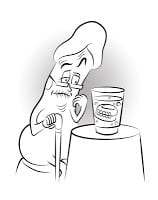 A: By far, the most frequent complaint I hear from men is that they do not have the same level of sexual desire they used to have. It takes longer to get an erection, it takes longer to ejaculate, it takes longer to get aroused again after they make love, and their erections are not as firm. These conditions are all predictable changes that occur as men get older.
A: By far, the most frequent complaint I hear from men is that they do not have the same level of sexual desire they used to have. It takes longer to get an erection, it takes longer to ejaculate, it takes longer to get aroused again after they make love, and their erections are not as firm. These conditions are all predictable changes that occur as men get older.
Attitude is the key to penis longevity. My super-potent patients tell me that sex gives them as much joy at 70 as it did at 20. Some say the sex is even better! Equal pleasure can be obtained from occasional, prolonged intercourse with one orgasm as with frequent, rapid intercourse with multiple orgasms.
All men, as they age, deserve active, healthy sex lives as long as they remain physically fit. Do not expect to do at 60 what you did at 40. Adjust your sexual activities as your body changes, just as you adjust other activities. Look upon the adjustment as both a new challenge and a new opportunity.
As you age, learn to use your mind and imagination to make up in creativity what you may lack in physical strength. As long as you are able to breathe, move your extremities, maintain relative control over your bodily functions, remain alert enough to identify the date and day of the week, and sustain a positive mental outlook, you can continue to exercise your penis power indefinitely.
Q: What would you say to many men age 60+ who tell me that they don’t get good information or direction from their urologists when they report undependable or nonexistent erections? They are commonly told, “Well, you’re older now,” or “It’s ED,” without a medical workup to see whether some underlying condition is causing the ED.
A: Find another urologist who is knowledgeable about erectile dysfunction and is willing and able to thoroughly evaluate you. A comprehensive evaluation, including a full cardiovascular evaluation, by a qualified urologist is essential. Endocrine issues, such as low testosterone or unrecognized diabetes, can then be treated, and erectile dysfunction will improve. Knowledge is power. There are many treatments on the urologic menu for erectile dysfunction, but first you need a proper diagnosis to identify the underlying cause. Treatment is both available and effective in almost all cases and will result in satisfactory erections.
Q: Many men would rather sever their own leg than admit to a doctor that they are experiencing erectile difficulties. Why is it important to see a doctor before self-treating with drugs or other assists?
A: Many serious medical conditions that are first manifested by erectile difficulties go unrecognized. It is absolutely essential to get a full evaluation by a qualified urologist in all cases of erectile dysfunction in order to determine the presence or absence of some serious (or not so serious) medical problem and treat it accordingly. For example, if low serum testosterone is found, testosterone replacement therapy can give spectacular results. Under no circumstances should a man self-treat his erectile dysfunction with over-the-counter preparations without first determining the presence or absence of an underlying medical condition that is correctable.
Q: How can women enhance their partner’s and their own sexual pleasure when erections and intercourse are not the main events?
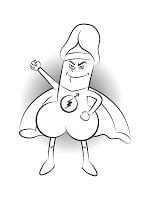 A: Most importantly, do not think old! Sexual pleasure is all about attitude. If your mind is strong and your partner’s mind is strong, intimacy and sex without vaginal penetration can be enormously pleasurable. The key is not to lament what you have lost. Be grateful for what you still have and make the most of it. Age is not a deterrent to great sex. Rather, it is a challenge and an opportunity.
A: Most importantly, do not think old! Sexual pleasure is all about attitude. If your mind is strong and your partner’s mind is strong, intimacy and sex without vaginal penetration can be enormously pleasurable. The key is not to lament what you have lost. Be grateful for what you still have and make the most of it. Age is not a deterrent to great sex. Rather, it is a challenge and an opportunity.
If you keep your enthusiasm, you can compensate for or even delay the effects of aging. You do not stop having sex because you are old—you get old because you stop having sex! Talking candidly with your partner about aging is the best way to find a solution for maintaining a healthy sex life.
Q: What else do you want women to understand about their male partners?
A: Older men are just as penocentric as younger men are, even though capacity may be diminished. I would encourage older women to become more “penis oriented.” Older women who are penis oriented have more fun and also have better marriages, more faithful partners, and greater personal fulfillment in all aspects of their lives. If you believe that each partner has the mutual responsibility to satisfy the other’s needs, then it follows that you will hold up your end of the bargain as a woman by making your partner’s penis one of your top priorities.
Being penis oriented does not imply a belittlement of female sexuality. It simply means learning to understand and accommodate an older man’s penis needs by approaching that task with all of the pride and skill that you would bring to any other endeavor. I assure the older woman that if you take the steps to become informed, you and your man will reap rewards you have only dreamed about.
Images are from Penis Power: The Ultimate Guide to Male Sexual Health by Dudley Seth Danoff, MD. ©2011 Dudley Seth Danoff. Reprinted by permission of Dudley Seth Danoff. Copies of the book are available at your local bookstore or may be ordered through Amazon.com.
